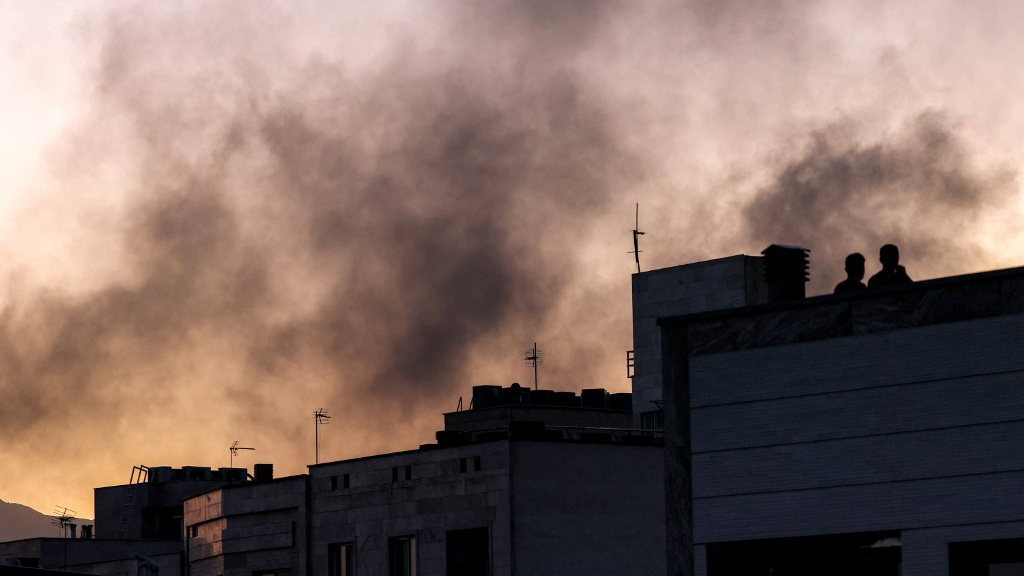The recent hostilities between Israel and Iran, and the entrance of the US into the conflict at the behest of its regional ally, are once again posing serious questions about diplomacy, international order and nuclear proliferation.
Israel’s launching of strikes against Iran drew from the same playbook it has employed in its multiple interventions across the region in recent years. This strategy comprises assassinations and the targeting – in addition to military sites – of civilian infrastructure, such as universities and hospitals. Israel’s recent strikes killed hundreds of civilians in Iran.
One need not be an expert in international affairs to see that this offensive was designed to derail the delicate diplomacy that had been taking place between Iran and the US since President Donald Trump’s return to power.
Washington’s participation in this conflict not only rode roughshod over Trump’s promise to end costly American interventions abroad, but it also highlighted the continuing hold that Israel maintains over US policy in the Middle East.
Despite Tel Aviv’s boasts of air supremacy, and its stated desire to curtail Iran’s offensive capabilities, Tehran remained able to launch devastating attacks against military targets in Israel. It also made a performative, symbolic strike against the American al-Udeid airbase in Qatar.
New MEE newsletter: Jerusalem Dispatch
Sign up to get the latest insights and analysis on
Israel-Palestine, alongside Turkey Unpacked and other MEE newsletters
The triumphalist messaging from the US in the wake of its initial hits against Iran’s nuclear sites has now been overshadowed by a frenzied debate over the relative success or failure of the strikes, and the whereabouts of Iran’s enriched uranium stockpile.
Predicting the next moves is beyond the purview of even the most seasoned observer, especially given the continued fragility of the ceasefire. The leadership in Tehran long ago telegraphed what its response would be to direct US attacks on Iranian territory, as evidenced by the carefully calibrated al-Udeid strike.
Disrupting shipping through a closure of the Strait of Hormuz was tabled, while a more forceful response might have seen a targeting of Israel’s own nuclear sites – facilities that face no international oversight, with Israel remaining the Middle East’s only nuclear-armed state.
Global insecurity
Fanciful notions of an “unconditional surrender” by Iran were always highly unrealistic. If Trump’s attempt to impose a ceasefire on Israel and Iran fails, then the stage could be set for a costly war of attrition, in which Israel and the US can ill afford to get bogged down.
By attacking a non-nuclear-armed state, Israel and the US have massively increased incentive for other states to weaponise their own nuclear programmes
Iran’s nuclear knowledge cannot be bombed away, despite Israel’s strategy of scholasticide. A further dangerous aspect is Trump’s regular changes of direction, extreme even by his own highly capricious standards – with a seeming desire for negotiations being immediately followed by US attacks against nuclear facilities, before swinging back to diplomacy again.
Running in parallel with confused statements about Washington’s stance on regime change in Iran, this lack of direction makes it very difficult for Tehran to read the US president’s true intentions. This makes calibrating a response even more precarious.
Ultimately, two nuclear-armed powers might have violated international law to pre-emptively disable a perceived threat emanating from Iran’s nuclear programme, despite intelligence estimates to the contrary. Concurrent hopes of somehow fomenting a viable domestic challenge to the Islamic Republic were also naive, and showed that regime change is not something that can be imposed under aerial bombardment.
Domestic political polarisation and questions over the legitimacy of the Islamic Republic still exist within Iran, but expecting change to come through external military force shows a total lack of understanding of Iran’s history and its people’s response to foreign intervention.

By allowing Israel to bomb Iran, Trump is pushing Tehran to go nuclear
Read More »
The Israeli-US action has created a world that is now far more insecure. These developments will increase calls within Iran to weaponise its nuclear programme as a deterrent against further action. By attacking a non-nuclear-armed state, Israel and the US have massively increased the proliferation risk, giving other states an incentive to weaponise their own nuclear programmes as a means of ensuring their survival.
Having a nuclear deterrent has worked for Israel so far, whereas pursuing nuclear diplomacy has thus far not worked for Iran – so other states with nuclear ambitions will look to this moment to help shape their own decision-making.
Finally, the weak, copy-pasted response by European states to Washington’s entry into the conflict only further undermined the foundations of the “rules-based order” they hold so dear.
With their reputation for upholding this vision already in tatters over the double standards applied in relation to Ukraine and Gaza, their cowardly submission to US and Israeli “security interests” further underlines both their hypocrisy and ineffectiveness.
As the US and Israel pursue a “might is right” strategy, their impunity trashes any sense of international norms or consensus, resulting in greater insecurity for all.
The views expressed in this article belong to the author and do not necessarily reflect the editorial policy of Middle East Eye.

